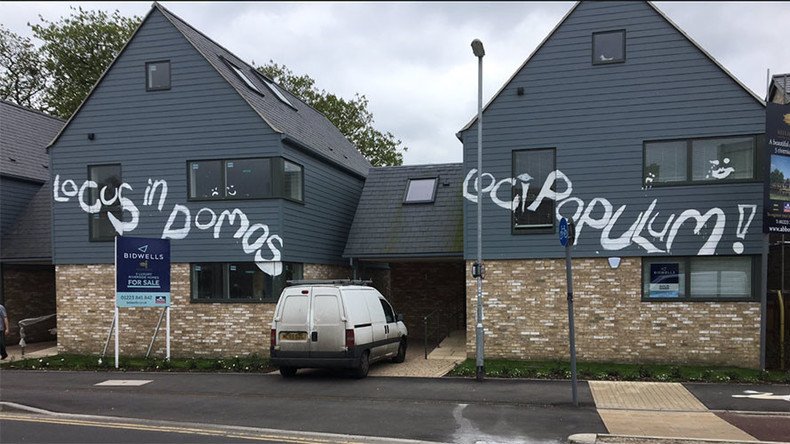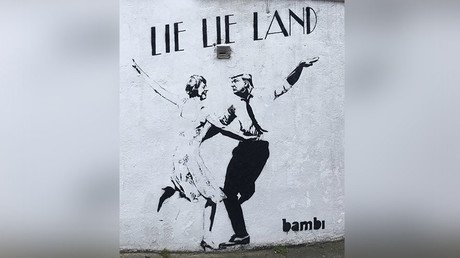Highbrow vandalism: Luxury Cambridge homes scrawled with Latin graffiti

While most graffiti amounts to tags of local gangs or some type of profanity, Cambridge residents can rest assured that at least their homes will be eloquently defaced – in Latin.
This week locals woke up to find two houses on the Water Street luxury estate daubed with the words “locus in domos, loci populum.”
The translation, as given by Cambridge University Professor of Classics Mary Beard, was “a lovely place has been turned into houses.”
It is believed the maxim was meant to read “local homes for local people” – a denunciation of the new estate overlooking the River Cam where properties can fetch £1.25 million (US$1.55 million) each. The site was once the home of a pub.
Many commented that a Latin-themed protest could “only happen” in the famous university city.
Many were not best pleased with the vandalism, but not for the reason you might think.
“That’s terrible Latin, which is why Mary Beard couldn’t figure it out,” one commenter told the BBC, reminiscent of the ‘Monty Python’s Life of Brian’ scene where Roman guards force Graham Chapman’s character to correct his own Latin graffiti.
“Latin graffiti and people arguing about the correct translation... couldn’t be more ‘Cambridge’ if you tried,” another commented.
“Only in Cambridge could people be more concerned that the Latin graffiti is bad Latin, rather than the fact it’s graffiti,” local councillor Zoe O’Connell said on Twitter.
Centre for Cities data shows that house prices in the university town are currently the third highest in the country, with an average home costing nearly £500,000.
Peak Cambridge: Latin graffiti daubed on controversial housing development pic.twitter.com/3XqzqtUaCN
— Thomas Connelly (@LegalCheek_Tom) April 4, 2017
It’s not the first time the dead language has been used to protest local issues. In 2015 a series of bicycles chained to railings in the city center were covered with scrawlings saying “remove or destroy” in either Latin or ancient Greek.
“We do have our eccentrics in the city,” said local housing campaigner Richard Taylor.
“But it doesn’t seem to go together, the ability to write in Latin and being prepared to scrawl on buildings and cause massive amounts of damage.”
Cambridge Police confirmed it is investigating the incident.













